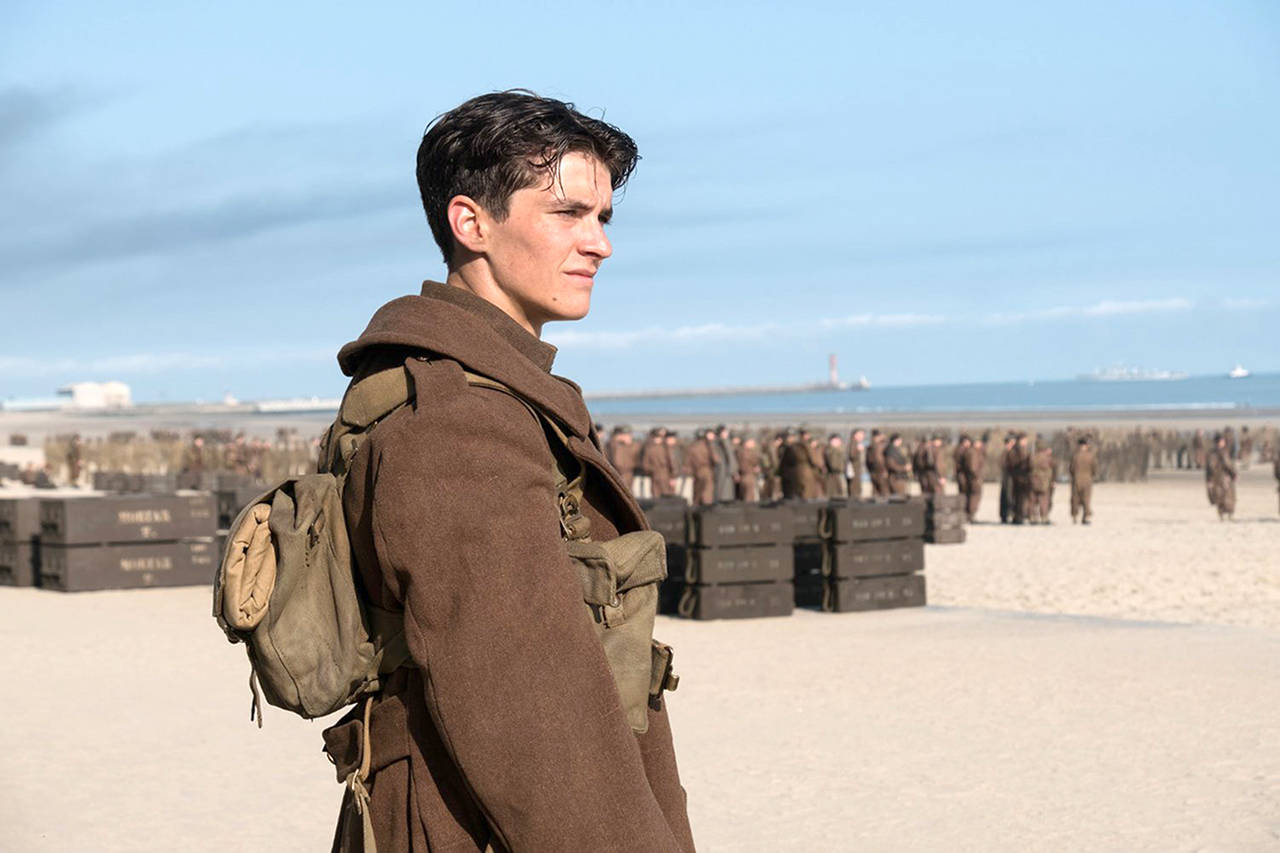One thing a viewer quickly notices about “Dunkirk” is what isn’t on the screen.
There’s no Winston Churchill. No Adolf Hitler. Very little background. Not much dialogue.
Yet writer-director Christopher Nolan overcomes most of these self-imposed limitations to deliver a poignant, often moving war film that is already receiving Academy Award buzz.
To me, however, it was a very good movie that could have been great with a different director.
It covers what has often been described as “The Miracle of Dunkirk,” one of the seminal events of World War II.
In the process of occupying France in June 1940, the German army trapped retreating British and French troops on the beach in the coastal French town of Dunkirk, across the English Channel from Great Britain. With the channel too shallow to undertake a traditional operation, the British sent a flotilla of small vessels to the rescue and somehow managed to evacuate some 330,000 men from the beaches and harbor. Without that manpower, it is doubtful England could have survived the subsequent Battle of Britain.
Hitler’s decision to temporarily halt German troops south of Dunkirk (for reasons that are still debated among historians) before moving in for the kill is still considered one of the greatest blunders of the war.
Dissecting military strategy, however, isn’t part of Nolan’s playbook. Unless I missed it someplace, Hitler isn’t even mentioned in this 106-minute film.
Best known for his work on the “Batman” trilogy that includes “The Dark Knight” and “The Dark Knight Rises,” Nolan rejects (probably wisely) the episodic approach common to war movies. He instead focuses his attention on a handful of composite characters.
Fionn Whitehead plays Tommy, a young British private desperate to get off the beach and return to his homeland. Mark Rylance portrays Dawson, a civilian who skippers his own boat with the aid of his son and a nondescript deckhand to aid in the rescue. Tom Hardy is part of a trio of Royal Air Force pilots who provide air cover.
Veteran actor Kenneth Bran-agh has a small role as the pragmatic British commander overseeing the evacuation. There also memorable turns from Aneurin Barnard, as an evacuee befriended by Tommy who is hiding a secret; and Cillian Murphy as a shell-shocked soldier (rescued by Dawson) who is horrified at the prospect of returning to Dunkirk.
For the most part, Nolan gets the audience involved in these stories. The pilots are ciphers as characters, but their scenes are redeemed by spectacular action sequences.
Hardy spends many of his scenes partially hidden by a flight mask. He has so little dialogue that it takes a while to realize he’s even in the movie. Whitehead makes a stronger impression as a resourceful but very human soldier.
Acting honors, however, belong to Rylance. An Oscar winner as the unflappable Soviet agent in Steven Spielberg’s underrated 2015 drama “Bridge of Spies,” he somehow manages to create a multidimensional character — patriotic, compassionate and blessed with a surprising amount of military savvy — in his limited screen time. He reportedly improvised some of his scenes.
For all of Nolan’s virtues as a filmmaker, the thought persists that this would have been a better movie had Spielberg directed. As he demonstrated in such wartime classics as “Schindler’s List” and “Saving Private Ryan,” Spielberg could have provided historical context without sacrificing action. Shockingly, Nolan fails to even supply an epilogue explaining the significance of the evacuation.
He did, however, write an appropriate summation near the film’s end. Congratulated by a civilian back in England, an evacuee says, “All we did was survive.” “That’s enough,” the civilian responds.
In most respects, the film is a triumph. Shot in a wide-screen format, it is visually stunning. Nolan tells his stories well and never lets the pace slacken.
And for those wanting the full story of what really happened at Dunkirk, there’s always the History Channel.



